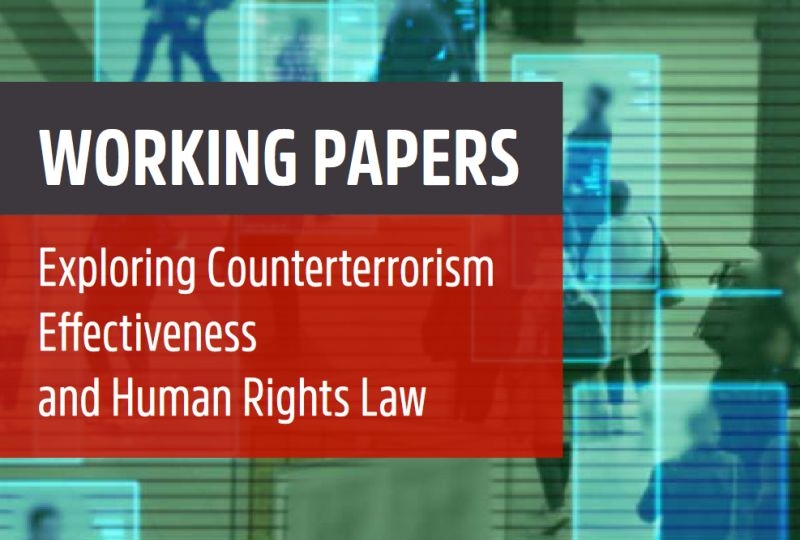26 September 2023
The relentless expansion of counterterrorism policies has significantly affected human rights. However, the effectiveness of these measures remains shrouded in uncertainty, with their designs often lacking empirical foundations and their functioning rarely subjected to rigorous evaluation. At the same time, the debate on the justifiability of rights' limitations in the name of national security has not adequately considered the effectiveness of counterterrorism efforts.
Our newly released Working Paper bridges the gap between the notion of ‘effectiveness’ in counterterrorism and human rights law to stimulate discussion among the academic, human rights, and policy-making communities. It offers a comprehensive examination of counterterrorism measures implemented across Europe and delves into the formidable challenges faced when attempting to assess the effectiveness of counterterrorism initiatives. Additionally, the paper conducts a thorough review of existing studies that endeavour to gauge the impact of these measures and identifies persisting gaps in the scholarly literature. It explores areas hitherto underexplored, such as the often-overlooked psychological effects of counterterrorism policies and the imperative for adopting a multifaceted approach to measuring effectiveness.
‘In a world grappling with complex security challenges, ‘Exploring Counterterrorism Effectiveness and Human Rights Law’ invites readers to embark on a critical journey, shedding light on the intricate dynamics between security and human rights. It calls for us to consider the effectiveness of counterterrorism policies as a matter of human rights law and demonstrates the benefits of this approach in improving the rationality of the decision-making process’ explains our Director Professor Gloria Gaggioli, co-author of the paper and principal investigator of the Research Project Counter-Terror Pro LegEm.








